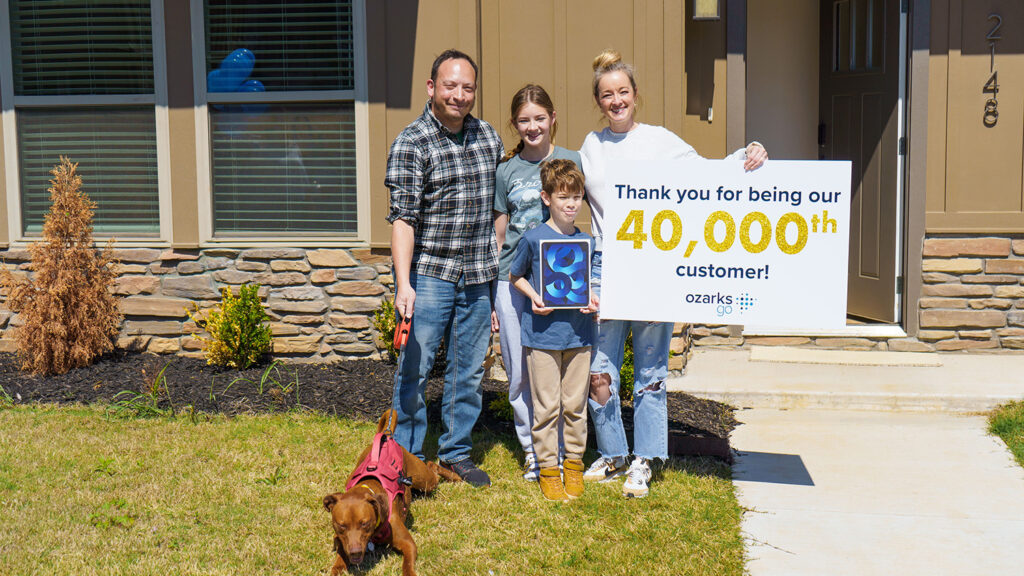
Arkansas distribution cooperatives are celebrating building future-proof fiber optic broadband access to more than 1 million rural residents within seven years.
“No longer does a person have to live in a metropolitan area to have access to lightning-fast internet service,” said Vernon “Buddy” Hasten, president/CEO of Arkansas Electric Cooperative Corp. and Arkansas Electric Cooperatives Inc.
“No longer do young people have to leave their communities to work for a national or international company. The locally controlled cooperatives exist to improve the quality of life of the residents in their communities.”
Fifteen Arkansas co-ops with broadband subsidiaries are equipped to serve a total of 1.4 million residents with nearly 53,000 miles of fiber in rural areas that can deliver gigabit speeds on par with the fastest internet service available anywhere. So far, about 41,000 miles of fiber have been deployed, connecting more than 170,000 subscribers and giving 72 of 75 counties in Arkansas access to co-op broadband.
The co-ops have invested $1.66 billion in the estimated $2.2 billion broadband deployment and are hopeful for assistance from the federal Broadband Equity, Access and Deployment (BEAD) program.

Fayetteville-based Ozarks Electric Cooperative was one of the first electric co-ops in the state to explore offering retail broadband after it began using fiber for communications to its substations and to operate cloud-based billing and net metering.
“The journey’s been a quick and fast and furious and sometimes challenging process, but it’s been extremely rewarding,” said Mitchell Johnson, the co-op’s president and CEO, adding that the venture has been about 90% self-funded and cost-effective.
OzarksGo hooked up its first broadband subscriber in 2017 and recently topped 43,000 connections, including over 2,200 commercial accounts ranging from hospitals, schools and banks to small entrepreneurs. It’s currently adding almost 500 subscribers a month.
The importance of delivering broadband to rural communities became crystal clear during the COVID-19 pandemic, Johnson said. That’s when OzarksGo partnered with local school districts on a solution: equipping school buses with fiber broadband to serve as reliable Wi-Fi hotspots where needed most.
“Members were in desperate need of connectivity to work from home or educate their children at home,” he said.
In 2020, the co-ops and AECC established Diamond State Networks (DSN) to enhance broadband accessibility, optimize cost-efficiency for data transfers and offer commercial clients the streamlined service of a singular provider. Integrating their fiber infrastructures and creating this “middle mile” framework helped the co-ops reach the milestone of broadband access to over 1 million residents, said Johnson, who chairs the DSN board of directors.
“To get that connectivity with your own assets is a major advantage. It’s a reliability strategy, and secondly, it is a cost-reduction strategy,” he said.
Johnson also attributes the co-ops’ broadband growth and success to their boards and staff.
“It takes a lot of people who are proud of what they do and really value the mission and the purpose of the electric co-op and what it means to the communities that we serve.”
Cathy Cash is a staff writer for NRECA.